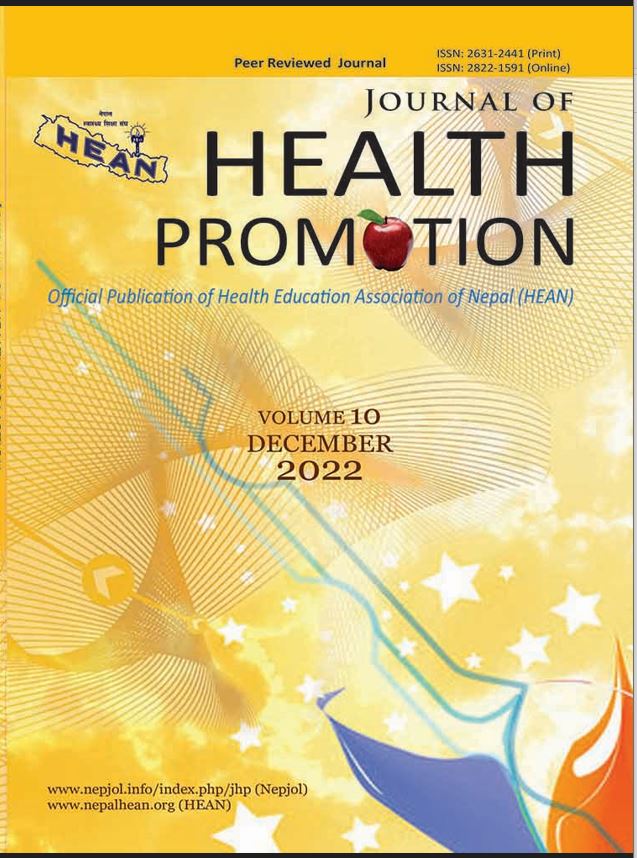Food insufficiency among returnee migrants during COVID-19
DOI:
https://doi.org/10.3126/jhp.v10i1.50986Keywords:
COVID-19, food insufficiency, Nepal, returnee migrants, Sudurpaschim ProvinceAbstract
Remittance from the employed in the foreign countries has been contributing a lot to Nepal's economy, supporting the livelihoods of millions of families. The COVID-19 pandemic has been a catalyst for unprecedented social and economic change and exacerbated food insecurity levels in the short- and longer-term across the world. The study's objectives are to examine the status and determinants of food insufficiency due to COVID-19 among returnee migrants of the far western province of Nepal. Data for this survey were collected through telephone interviews with the respondent using cross-sectional research design selecting 1182 respondents as the sample. Among these returnee migrants 94.2% were males and one third of them were the youth of less than 25 years. The data were analyzed conducting univariate, bivariate and multivariate statistical tools. It was found that 18% of returnee migrants had food insufficiency in their households during the survey period. Multivariate analysis showed that the households with single women were about 1.9 times more likely to have food insufficiency (aOR=1.867, 95% CI=1.12- 3.11) than those households who did not have single women. Respondents with any healthrelated problem were two times more likely to have food insufficiency (aOR=2.443, 95% CI=1.48-4.03) than those who did not have any health-related problem. Similarly, migrants from poor households were two times more likely to have food insufficiency (aOR=2.620, 95% CI=1.52-4.52) than somehow well- to-do households. The female migrants who were physically disabled had lost their jobs in the host country and had been suffered more from food insufficiency.
Downloads
Downloads
Published
How to Cite
Issue
Section
License
Copyright (c) 2022 Health Education Network (HEAN)

This work is licensed under a Creative Commons Attribution-NonCommercial 4.0 International License.
© Health Education Association of Nepal (HEAN)
Authors are required to transfer their copyright to the Health Education Association of Nepal (HEAN).
The materials of this publication may be reproduced, reviewed and translated, acknowledging the source "Journal of Health Promotion".




